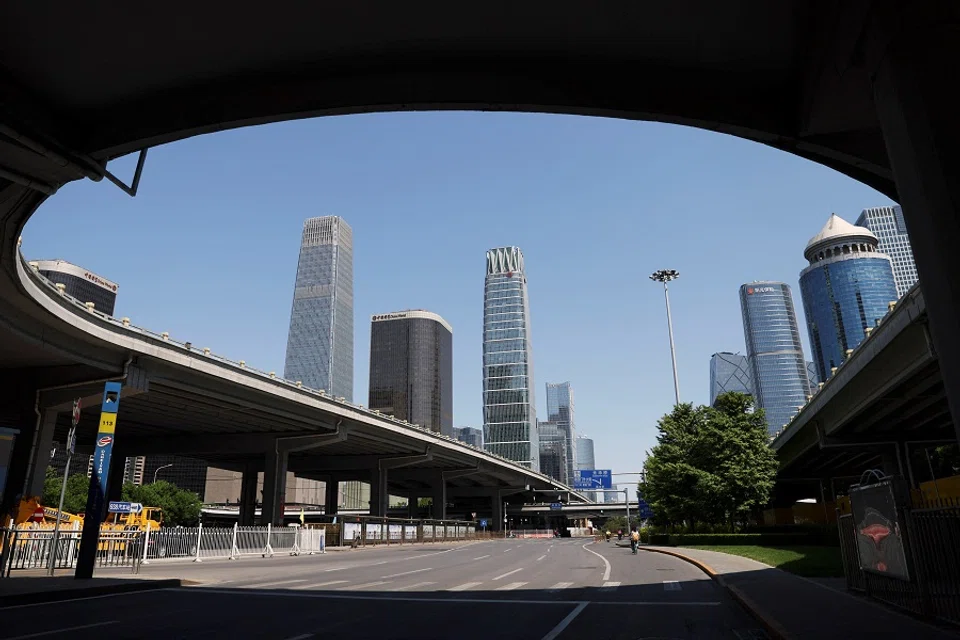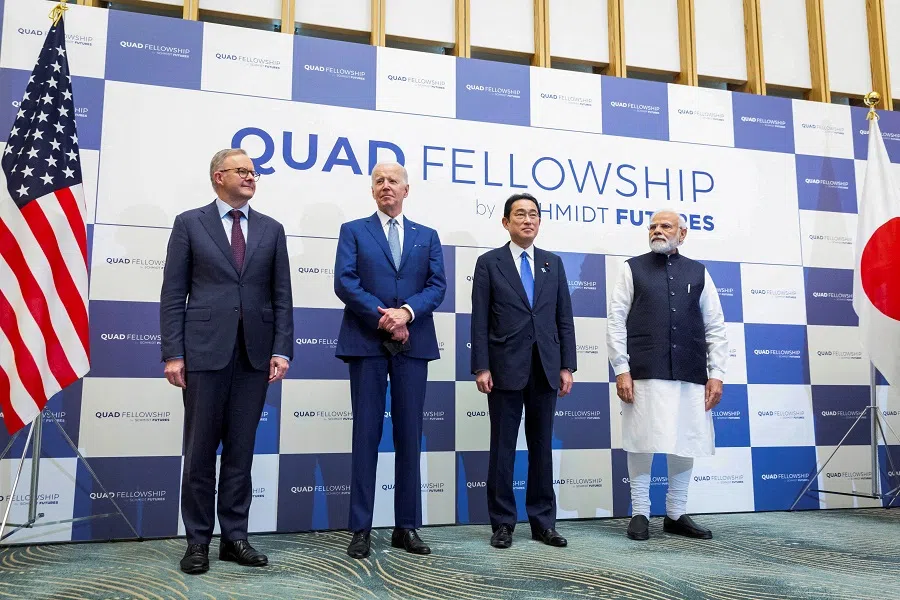Xi's Global Security Initiative: In pursuit of China's own interests and ambitions
Indian academic Amrita Jash believes that China's proposal of the Global Security Initiative was made primarily out of its own interests and the world is left no more convinced that it can be a responsible stakeholder in the international system.

On 21 April 2022, at the Boao Forum for Asia Annual Conference 2022, Chinese President Xi Jinping in his keynote address raised the Global Security Initiative (GSI) - a Chinese solution to global security challenges.
Projected as "security for all in the world", the initiative in Xi's view is "committed to the vision of common, comprehensive, cooperative and sustainable security" and aims to, inter alia, "uphold the principle of indivisible security, build a balanced, effective and sustainable security architecture, and oppose the pursuit of one's own security at the cost of others' security".
In Beijing's view, as clarified by China's Foreign Ministry spokesperson Wang Wenbin, "with growing threats posed by unilateralism, hegemony and power politics, and increasing deficits in peace, security, trust and governance, mankind is facing more and more intractable problems and security threats". In the face of such threats, the GSI is "yet another global public good offered by China and a vivid illustration of the vision of a community with a shared future for mankind in the security field".
While the GDI had the economic slowdown caused by the Covid-19 pandemic as the pretext, the logic behind GSI can be attributed to Beijing's own concerns over not being perceived as a "normative actor".
An extension of the Global Development Initiative
An extension of Xi's mantra of building a "community of shared future for mankind", the GSI can be seen as a political add-on to Xi's economic idea of the Global Development Initiative (GDI) launched in 2021 to promote "more robust, greener and more balanced global development". While the GDI had the economic slowdown caused by the Covid-19 pandemic as the pretext, the logic behind GSI can be attributed to Beijing's own concerns over not being perceived as a "normative actor".
Undoubtedly, China today faces global resentment over its actions and policies in relation to Hong Kong, Xinjiang, Tibet and Taiwan; its assertive posture over its claims in the South China Sea, East China Sea and the Himalayan border with India; its trade war with the US and more recently, over the coronavirus pandemic and now, the Russia-Ukraine war. These issues have raised significant doubts over China's ability to be a "responsible actor".
While the GSI can be interpreted as a Chinese way of finding solutions to global challenges, the question remains whether this can happen when China itself in many ways has become "the challenge"?

However, China has justified its actions as "fair" against the prevailing global conditions that it perceives to be representing "Cold War mentality", "hegemonism and power politics" and "bloc confrontation" that "endanger world peace" and "exacerbate security challenges in the 21st century".
The solution lies in the GSI, which in Beijing's view, offers a "new vision" with "security as the guiding principle, mutual respect as the fundamental requirement, indivisible security as the important principle, and building a security community as the long-term goal, in order to foster a new type of security that replaces confrontation, alliance and a zero-sum approach with dialogue, partnership and win-win results".
While the GSI can be interpreted as a Chinese way of finding solutions to global challenges, the question remains whether this can happen when China itself in many ways has become "the challenge"? Undeniably, China's rise has paved the way for narratives of "the China threat".
... the elements of the framework convey a monolithic view that mainly caters to China's interests.
China's reasons for launching the GSI
In this respect, in assessing the initiative, three aspects must be noted. The foremost is the timing of the announcement of GSI. That is, China's grand idea comes amidst the rising insecurity and growing global resentment towards the country - starting with the Covid-19 pandemic which began in Wuhan and now, over China's position on the Russia-Ukraine war against the backdrop of Beijing's "no limits" friendship with Moscow. It is noteworthy that of all countries, it is China that is walking on a tightrope in the Russia-Ukraine crisis due to its stance.
Second, the elements of the framework convey a monolithic view that mainly caters to China's interests. First, "respecting the sovereignty and territorial integrity of all countries" can be read as "respecting" China's sovereignty claims over the South China Sea, East China Sea, the Himalayan border with India as well as Taiwan. In reality, what can be witnessed, is China's increasing encroachment on the sovereignty claims of others in these areas of dispute.

Second, upholding "non-interference in internal affairs", is a way of signalling "non-interference" in China's internal matters related to Xinjiang, Tibet and Hong Kong. Third, to "reject the Cold War mentality, oppose unilateralism, and say no to group politics and bloc confrontation", is a way of denouncing any minilateral or multilateral groupings that China is not part of, such as the Quad, AUKUS and others. For instance, Beijing interprets the Quad to be an "Asian NATO" and an outfit with a "Cold War mentality".
Fourth, staying "committed to taking the legitimate security concerns of all countries seriously" can be clearly read in the context of Beijing's refusal to condemn Russia's invasion of Ukraine by defending its position on the grounds that the Ukraine crisis is a result of "historical complex historical context" and that Russia has "legitimate security concerns". And fifth, "to oppose the wanton use of unilateral sanctions and long-arm jurisdiction" further highlights Beijing's opposition to the use of sanctions by the international community as a tool of deterrence.
These actions buttress the claim that China is working towards a unipolar Asia and a multipolar world.
Quest for a unipolar Asia?
Lastly, while Xi's vision is branded to be "global in perspective", a close reading finds that it appears to be hinged on "Asia". This is founded in Xi's three-fold proposition on Asia under the GSI: safeguarding "peace in Asia", advancing "Asian cooperation", and promoting "Asian unity". Xi believes that "when Asia fares well, the whole world benefits". These actions buttress the claim that China is working towards a unipolar Asia and a multipolar world.
Hence, given this gamut of Chinese interests interplayed under a "global" narrative, it is clear that China has put its best foot forward in acting as a "responsible player" as the world still speculates and debates: Can China become a responsible stakeholder in the international system?
Related: Global Security Initiative - China's solution to international security? | Why the Global Security Initiative is important for Asia-Pacific security | US-ASEAN summit: Washington still has an uphill climb | Why India's neutral stance in the Russia-Ukraine war works | China must reflect on its third-party position in the Russia-Ukraine war





